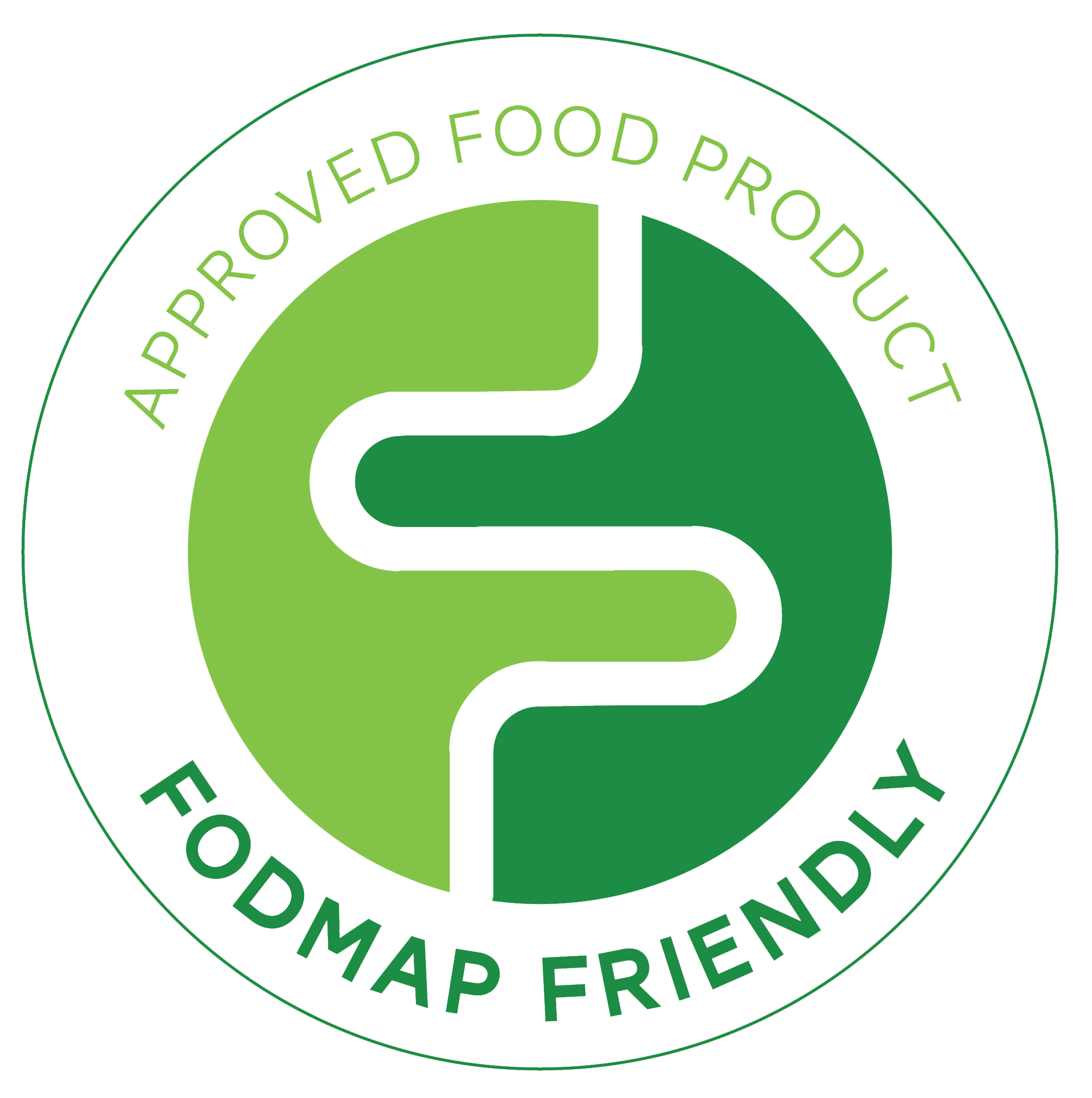FODMAPs For Beginners – The Low FODMAP Diet Basics!
Posted on April 07, 2021
What is IBS?
IBS (Irritable Bowel Syndrome) is a common condition. Did you know that 1 in 7 are affected by this condition and can experience a range of symptoms?
Some common symptoms include:
- abdominal pain and cramping
- excessive flatulence
- diarrhoea
- constipation
- bloating
What are FODMAPs?
FODMAP is a term that stands for Fermentable Oligosaccharide, Disaccharide, Monosaccharide And Polyols.
It categorises a group of short chain carbohydrates (or sugars) that can trigger painful and problematic symptoms for people with IBS.
Foods high in FODMAPs can trigger gastrointestinal symptoms as the fermentation of FODMAPs by gut bacteria occurs in the large intestine. The fermenting of the FODMAP sugars produces gas which can cause bloating and abdominal pain. Furthermore, FODMAPs can draw water in the large bowel and alter regular bowel habits. This may lead to diarrhoea or constipation.
Diagnosis of IBS
If you are experiencing any IBS-like symptoms, consult your Doctor to eliminate other medical conditions such as coeliac disease and inflammatory bowel disease, as they may have some overlapping symptoms. If diagnosed with IBS, seek a FODMAP trained Dietitian for support.
What is the low FODMAP diet?
There are 3 steps for following the FODMAP diet.
1) Initial low FODMAP phase
This phase lasts ~2-6 weeks. The diet is low in FODMAPs to minimise IBS symptoms. It is recommended to consult a FODMAP trained Dietitian during this time for dietary advice as it requires removal of high FODMAP foods. A FODMAP trained Dietitian may educate you types of low FODMAP foods while meeting your nutrient requirements. Dietitians are experts in this area and will be able to recommend alternative ingredients and suitable recipes.
2) Re-introduction phase
In this phase, foods from each FODMAP sugar group are incrementally introduced back into the diet. This is a vital phase of the diet, which should be done with the assistance of a FODMAP trained Dietitian. This phase identifies which specific FODMAP may trigger your symptoms as we are all different and different foods may trigger symptoms for one person and not another. You may learn how much of certain foods you can tolerate without triggering IBS symptoms.
3) Personalisation Phase
This is the final stage of the diet! It incorporates all of your tolerance thresholds to each FODMAP sugar group. It is the ongoing diet that you are recommended to follow to reduce the symptoms of IBS. You may even try and re-challenge foods with a Dietitian in future to see if your tolerance thresholds for each sugar group increases. Remember that our tolerances to FODMAPs may change over time.
Role of the Dietitian

Dietitians are trained experts in providing personalised and evidence-based dietary advice to achieve a nutritional goal. They not only provide dietary advice for medical conditions, but they provide a holistic service that considers all aspects of food intake including taste preferences, cultural and religious backgrounds and food accessibility. Dietitians will be able to provide you with resources to help you make dietary changes that suit your lifestyle.
What FODMAP Friendly can do to help?
FODMAP Friendly Logo
Buying packaged foods and deciphering ingredients lists can be a challenge when starting a low FODMAP diet. Looking for packaged products wearing the green FODMAP Friendly logo indicates that that food has been tried and tested to be safe to consume on the low FODMAP diet! Visit the FODMAP Friendly website today to browse the range of certified products.
Resources
FODMAP Friendly App
Our app is a useful and transportable tool to that you can use at a supermarket to help your grocery shop, use it to find FODMAP Friendly certified products, and to find a FODMAP specialist dietitian. Click here to find out more!
Check out the FODMAP Friendly App to help you with serve sizes:
Android
iPhone
FODMAP Friendly Monthly Newsletter
Keep up to date with the latest FODMAP news! Subscribe today and you will receive the latest newly tested FODMAP Friendly certified products, FODMAP events, new tested foods, and low FODMAP recipes to try!











